Click to Skip Ahead
The most popular pet birds of the parrot family are cockatiels. They are native to Australia, where they are also called quarrions and weiros. Cockatiels are known to be quite affectionate and gentle.
Whether you already own a cockatiel or are planning on bringing your first one home, one of the key parts of owning a pet is figuring out how long it will live. A pet cockatiel can live for up to 25 years—some have even lived longer! This means that owning a cockatiel is a long-term commitment.

The Average Lifespan of the Cockatiel
The cockatiel in the wild has a life expectancy of about 10 to 15 years. But a tame cockatiel that has been well taken care of can live an average of 20 to 25 years, due in part to a healthy and nutritious diet.
According to the Guinness World Records, the oldest reported cockatiel on record is Sunshine from the U.S., who was 32 years of age as of 2016. Unfortunately, there have been no official updates on Sunshine since then, so it’s hard to say if she broke her own record.
There are steps you can take to help your cockatiel live a long life. Sometimes health problems or genetics might intervene that you will have little control of, but you do have control of many aspects of your cockatiel’s health.
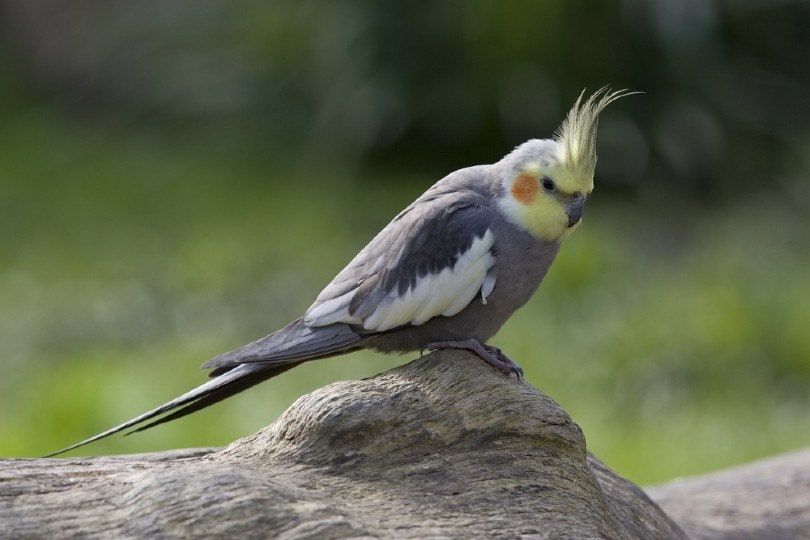

Why Do Some Cockatiels Live Longer Than Others?
1. Bonding
Cockatiels shouldn’t be any younger than 12 weeks old when you bring one home. These birds are very gentle and social and will need lots of attention and affection. Living in a loving and stress-free home where a cockatiel receives the attention it needs will help to prolong its life.
2. Diet
This is what sets the pet cockatiel apart from those found in the wild. Proper nutrition will help to extend your cockatiel’s life.
You can provide your cockatiel with high-quality pellets made for cockatiels, or there are also high-quality seed mixes. However, seeds or pellets shouldn’t make up the entirety of your bird’s diet. You’ll need to supplement with a variety of other food that will mimic what they would eat in the wild.
- Fresh fruit: Mangoes, berries, papayas, grapes, etc.
- Veggies: Lettuce, spinach, kale, celery, etc.
- Treats: Honey stick, millet spray (can be helpful with training but should be offered rarely, about once per month)
- Minerals: You can purchase a mineral block or cuttlebone for the cockatiel to enjoy
You should always ensure your cockatiel has access to fresh and clean water daily. This should be provided in two different ways. For example, both a bottle and a dish.
3. Health
Keeping an eye on your cockatiel’s overall health and noting any changes in personality, behavior, and appearance is vital.
- Stress: Cockatiels are sensitive birds and are prone to becoming stressed. Be sure to spend time with your bird, provide it with toys, and try to keep its environment as quiet and stress-free as you can. The cockatiel needs about 10 to 12 hours of sleep every night, so you should ensure its cage is in a location that will allow your bird a good night’s sleep.
- Obesity: Make sure you’re giving your cockatiel a well-balanced diet and plenty of opportunities to exercise.
- Check-ups: Find a vet experienced in dealing with birds and bring your cockatiel in for a yearly exam. Birds tend to hide when something is wrong, and it might be too late for your cockatiel when it starts to exhibit signs of illness.
- Air quality: Birds have delicate respiratory systems and should be kept away from fumes that come from cigarettes, candles, perfume, and air fresheners, to name a few.
Cockatiels are generally healthy birds, but when something goes wrong, you need a resource you can trust. We recommend The Ultimate Guide to Cockatiels, an excellent illustrated guide available on Amazon.
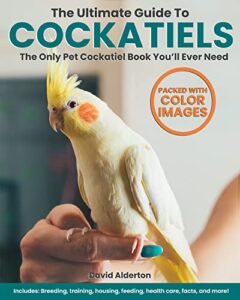
This detailed book can help you care for your cockatiel through injuries and illnesses, and it also offers helpful tips on keeping your bird happy and healthy. You’ll also find information on everything from color mutations to safe housing, feeding, and breeding.
4. Exercise
Having a large cage for your cockatiel is important, but it still isn’t enough for proper exercise. You should give your cockatiel the chance to really stretch its wings and fly about two times a day.
Make sure your bird is trained to sit on your finger, and you can use food to entice it back into the cage.
Toys can also be enriching for your cockatiel and will give it different opportunities for exercising.
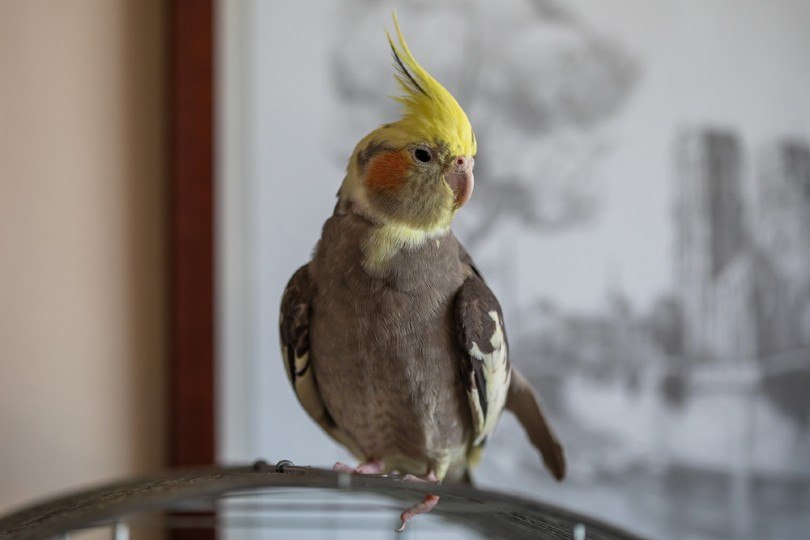
5. Safety
It goes without saying that keeping your cockatiel safe from accidents and harm will go a long way to ensure your bird will live a long life. Always supervise your cockatiel when it’s outside the cage, particularly if you have other pets or young children.
And always ensure that all doors and windows are closed when your bird is getting its exercise. You should also be sure that any toy you purchase is safe for your cockatiel and that the room you let it fly around in has been cockatiel-proofed.
6. Cleanliness
Keeping your cockatiel and its habitat clean can keep it happy and healthy. You should ensure your bird has a weekly bath, and you need to keep its cage clean.
- Daily: The liner in the cage should be changed every day, and the food and water bowls and bottles should be cleaned in warm and soapy water. This also includes the birdbath.
- Weekly: You’ll need to wash out the bottom tray and grate and clean any perches and platforms.
- Monthly: You’ll need to scrub the entire cage every month, which includes the bars.
Hygiene is paramount for keeping your cockatiel in good health, and this, of course, means a longer life.
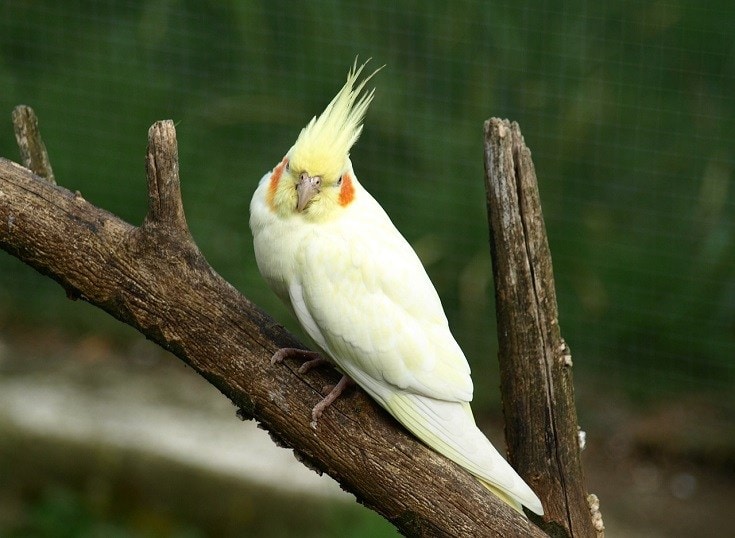

How to Tell Your Cockatiel’s Age
If you’re not sure how old your cockatiel actually is, there are some physical signs that might give you a better idea. Of course, a good avian vet might be able to estimate your bird’s age, but if your cockatiel is still young, the following are some ways of helping you determine your bird’s age:
- Males tend to sing more than females, but very young cockatiels will not sing, or they won’t sing too clearly.
- Males will only start exhibiting courting behavior when they are approximately 6 months old. Females don’t become broody until they are about 1 year old.
- Before a young male has its first molt, he will actually resemble a female. The male’s face will be gray in color instead of yellow. The first molt typically occurs after they are 6 months old.
There are very subtle signs on the cockatiel’s face and feet that can also give you an idea of the age, but you’ll need to be pretty experienced at spotting these signs.


Final Thoughts
It’s incredible what a difference living in a home instead of the wild can make for a cockatiel’s lifespan! These beautiful birds make loving companions, and as long as you take very good care of your cockatiel, it will be with you for quite a long time.
Featured Image Credit: Jenifer Kramer, Pixabay
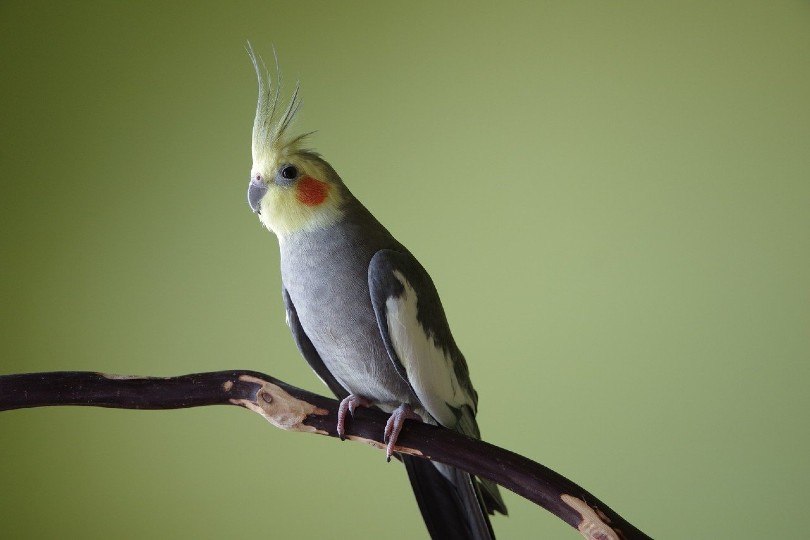





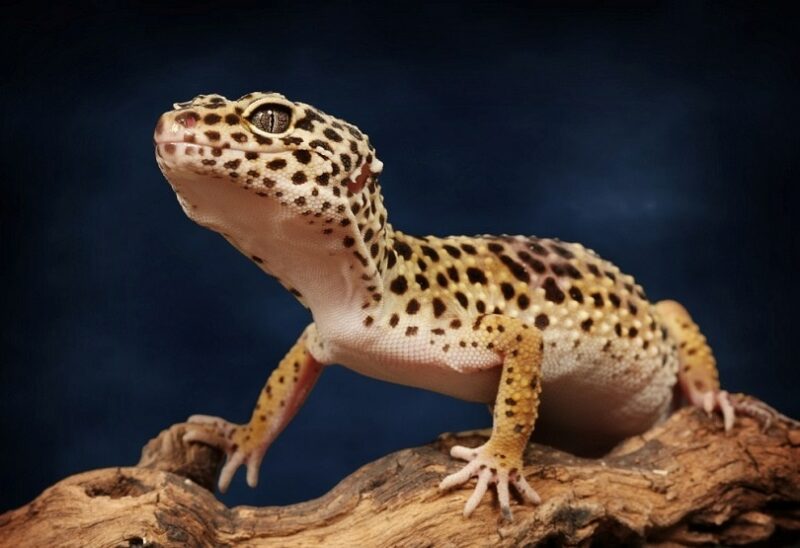
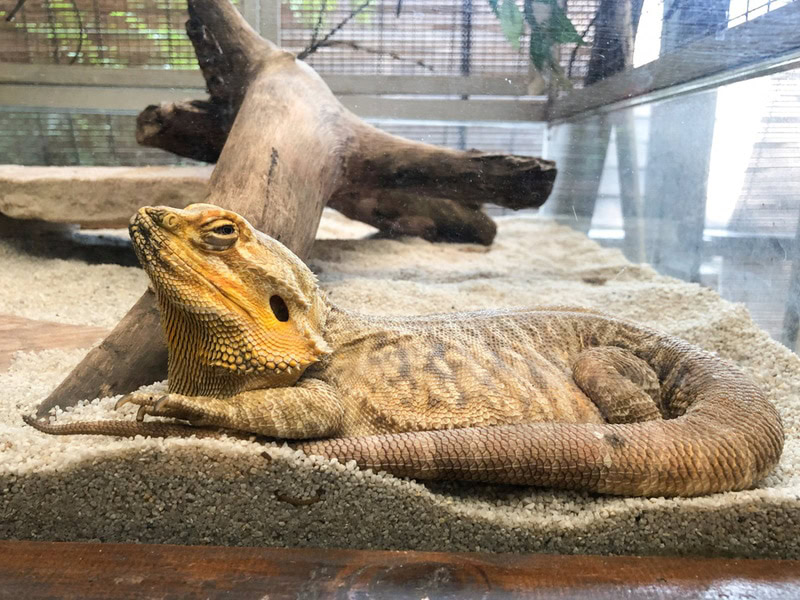
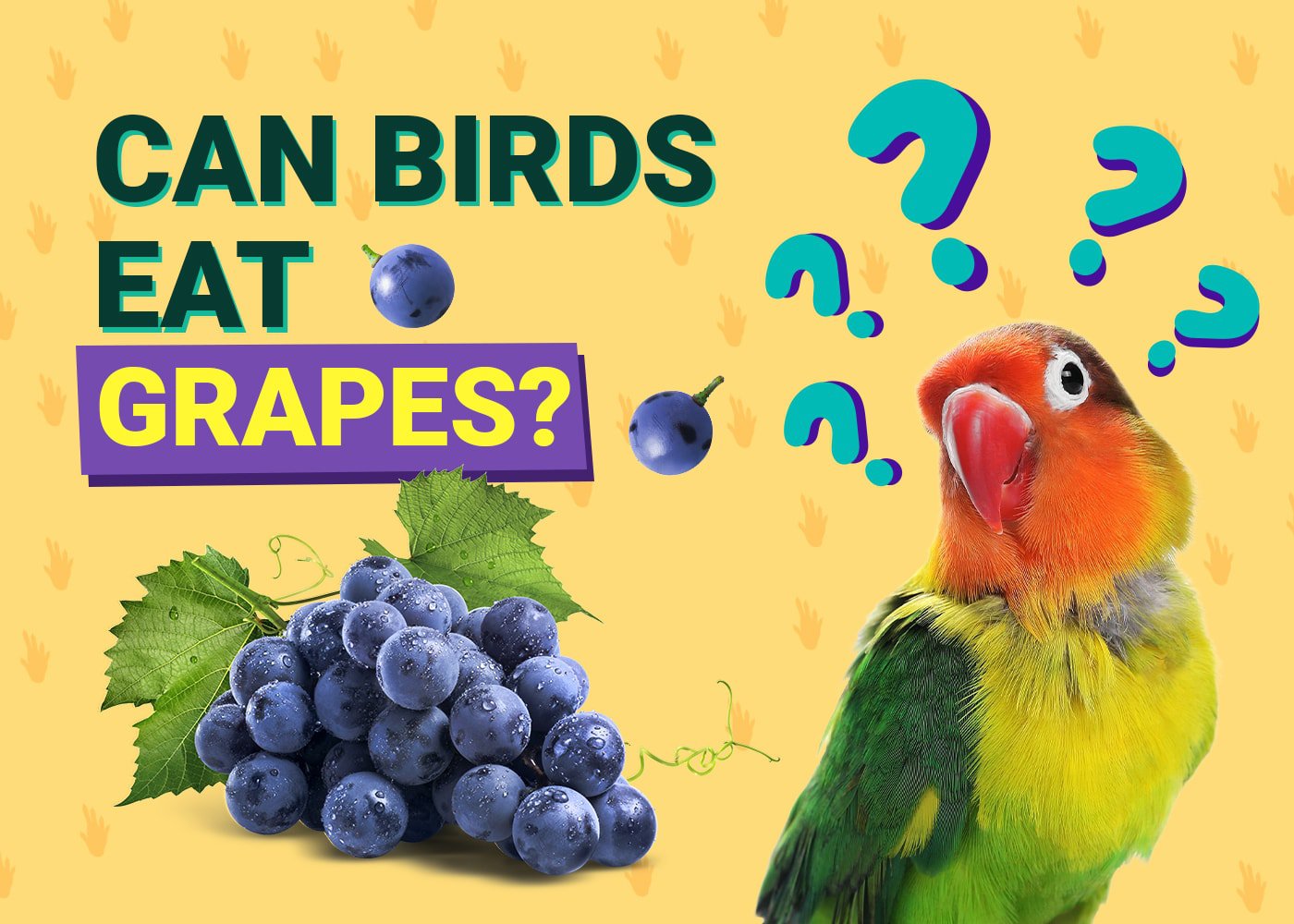


4 Responses
I had a male cockatiel (Mississauga, Ont. Canada), who died in Sept. 2012 at the age of 32. When he was 20, I bought another male cockatiel just 3 months old baby and introduced him to the older one. At first the older one did not accept a company and defended his territory. It took about 6 months until they became the good friends.
The youngster from the beginning treated the older one as a mother or father. He followed him every step his “mother or father” made. It was like that for the whole 12 years until the older one died.
They both have flown freely and walked around the room the whole day. They were going to the cage themselves only for the night. They were eating practically everything but never touched sweets, fats and egg yolk.
The “youngster” is now 24, he will be 25 in Feb. 2025 and is in a perfect health. There is a lot
of flying, walking, singing. But since the older one died, he is looking for any occasion to be close to me asking for scratching his head, petting him and talking to him.
Hello Richard,
thank you so much for sharing your story with us! Cockatiels are great pet birds to take care of. We hope your “youngster” will bring you much joy and happiness for years to come!
I got my cockatiel in 1999 from a lady who thought he was around 5 or 6. Going with 5, he is 31 now and doing fine.
Hello Teri,
Thank you for your message. Reading about your long-living cockatiel is amazing! You must be taking a great care of them. As mentioned in the article, the record holder lived up to 32 years, so maybe you have a record-breaker in your home!
Best of luck, we are excited to hear more news about your pet bird.